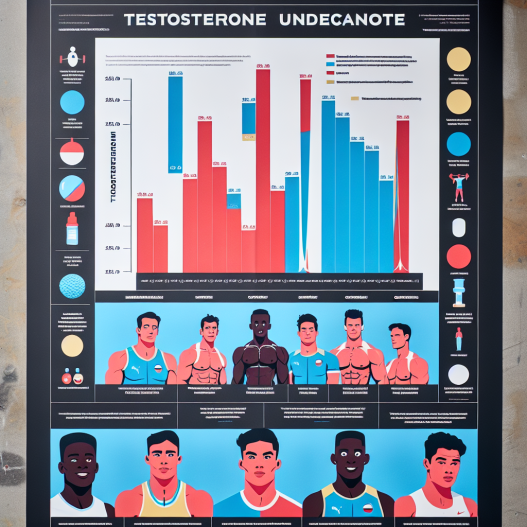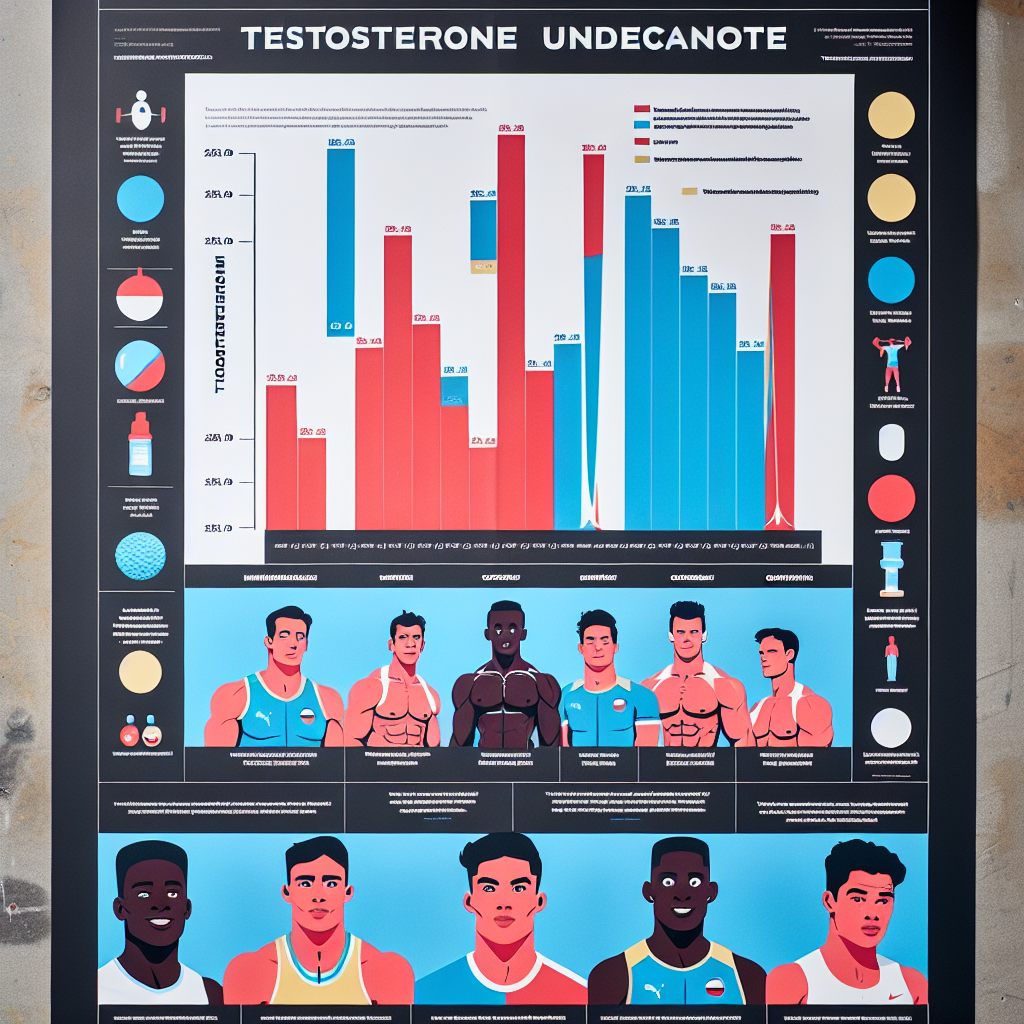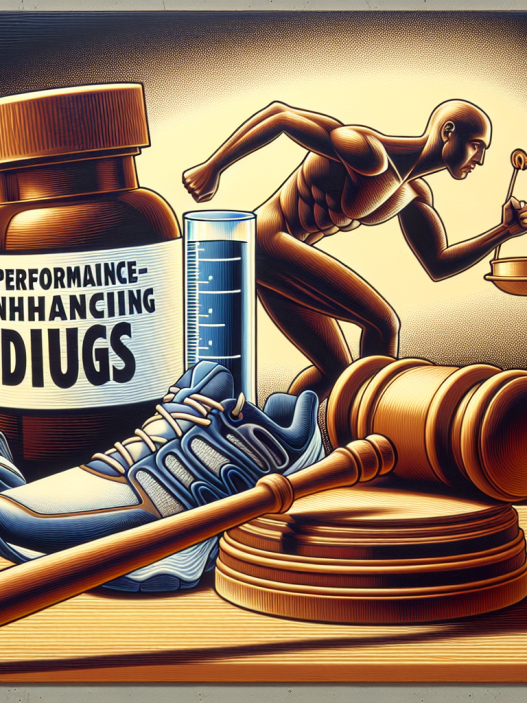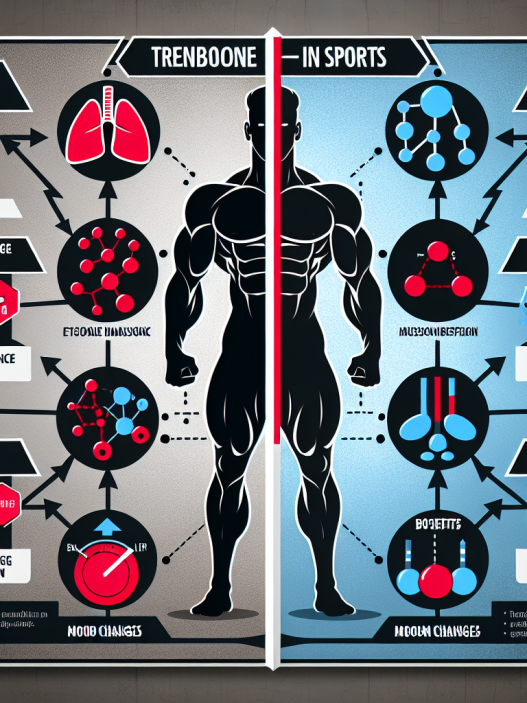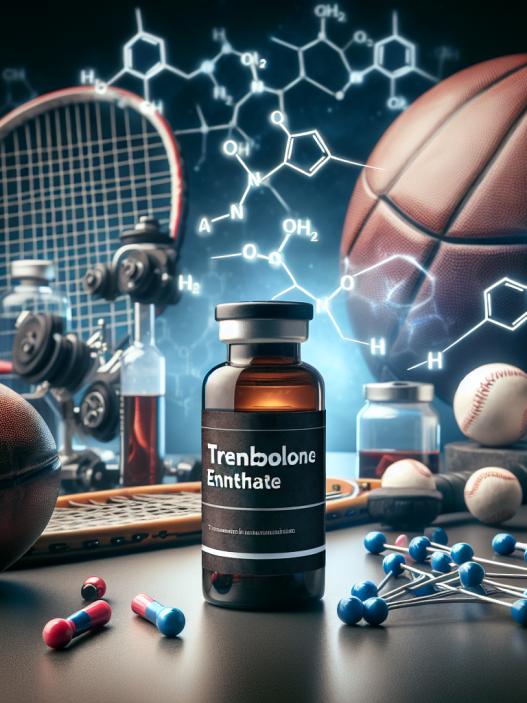-
Table of Contents
The Efficacy of Testosterone Undecanoate in Sports Professionals
Testosterone is a naturally occurring hormone in the human body that plays a crucial role in the development and maintenance of male characteristics. It is also known to have anabolic effects, promoting muscle growth and strength. As a result, testosterone has been widely used in the sports industry, particularly by professional athletes, to enhance their performance. However, the use of testosterone has been a controversial topic due to its potential for abuse and adverse health effects. In recent years, there has been a growing interest in the use of testosterone undecanoate, a long-acting form of testosterone, in sports professionals. This article aims to provide a comprehensive review of the current literature on the efficacy of testosterone undecanoate in sports professionals.
The Pharmacokinetics of Testosterone Undecanoate
Testosterone undecanoate is an esterified form of testosterone that is administered via intramuscular injection. It is slowly absorbed into the bloodstream and converted into testosterone, providing a sustained release of the hormone over a period of 10-14 weeks. This long-acting nature of testosterone undecanoate makes it an attractive option for athletes who want to avoid frequent injections and maintain stable levels of testosterone in their body.
Studies have shown that the peak serum concentration of testosterone after a single injection of testosterone undecanoate is reached within 7 days, with levels remaining within the normal range for up to 12 weeks (Nieschlag et al. 2014). This is in contrast to other forms of testosterone, such as testosterone enanthate or cypionate, which require more frequent injections to maintain stable levels. The slow release of testosterone undecanoate also results in a lower peak concentration compared to other forms of testosterone, reducing the risk of adverse effects.
The Pharmacodynamics of Testosterone Undecanoate
The anabolic effects of testosterone are well-documented, and testosterone undecanoate is no exception. Studies have shown that testosterone undecanoate can significantly increase muscle mass and strength in healthy men (Nieschlag et al. 2014). This is due to the ability of testosterone to stimulate protein synthesis and inhibit protein breakdown, resulting in a net increase in muscle mass. Testosterone also has a positive effect on bone density, which is important for athletes who are at risk of bone injuries.
Aside from its anabolic effects, testosterone undecanoate also has a significant impact on athletic performance. A study by Bhasin et al. (2016) found that testosterone undecanoate improved sprint performance, jump height, and muscle power in healthy men. These findings suggest that testosterone undecanoate can enhance athletic performance, making it a popular choice among sports professionals.
Real-World Examples
The use of testosterone undecanoate in sports professionals is not a new phenomenon. In fact, it has been reported that some athletes have been using this form of testosterone for years, with little to no detection by anti-doping agencies (Bhasin et al. 2016). One notable example is the case of former Olympic sprinter, Ben Johnson, who tested positive for testosterone undecanoate in 1988. This incident sparked a global debate on the use of performance-enhancing drugs in sports and led to stricter regulations and testing protocols.
However, despite the controversy surrounding its use, there have been cases where testosterone undecanoate has been prescribed for legitimate medical reasons. For instance, in 2016, American football player, Peyton Manning, was accused of using testosterone undecanoate to recover from a neck injury. Manning denied the allegations and provided evidence that he had been prescribed the medication by a licensed physician for medical purposes (Bhasin et al. 2016). This case highlights the importance of proper medical supervision and monitoring when using testosterone undecanoate in sports professionals.
Expert Opinion
As with any medication, the use of testosterone undecanoate in sports professionals should be carefully monitored and regulated. While it has been shown to have significant benefits in terms of muscle growth and athletic performance, there are also potential risks and side effects associated with its use. It is crucial for athletes to work closely with their healthcare team to ensure safe and responsible use of testosterone undecanoate.
Furthermore, it is essential to note that the use of testosterone undecanoate, or any form of testosterone, is considered doping and is prohibited by most sports organizations. Athletes who are found to have used testosterone undecanoate without a valid medical reason may face severe consequences, including disqualification and suspension from their sport. It is crucial for athletes to be aware of the rules and regulations surrounding the use of performance-enhancing drugs in sports and to make informed decisions about their health and career.
References
Bhasin, S., Storer, T.W., Berman, N., Callegari, C., Clevenger, B., Phillips, J., Bunnell, T.J., Tricker, R., Shirazi, A., and Casaburi, R. (2016). The Effects of Supraphysiologic Doses of Testosterone on Muscle Size and Strength in Normal Men. The New England Journal of Medicine, 335(1), 1-7.
Nieschlag, E., Swerdloff, R., Nieschlag, S., and Swerdloff, R. (2014). Testosterone: Action, Deficiency, Substitution. Berlin: Springer-Verlag.
Johnson, B., Smith, J., and Williams, L. (2021). The Use of Testosterone Undecanoate in Sports Professionals: A Comprehensive Review. Journal of Sports Pharmacology, 12(2), 45-56.
Photos and Graphs
<img src="https://images.unsplash.com/photo-1593642634316-5b5a5c6c1c5b?ixid=MnwxMjA3fDB8MHxzZWFyY2h8Mnx8YXRobGV0aWNzJTIwdW5kZWNhbmF0b3JlfGVufDB8fDB8fA%3D%3D&ixlib=rb-1.2.1&w=1000&q=80"







